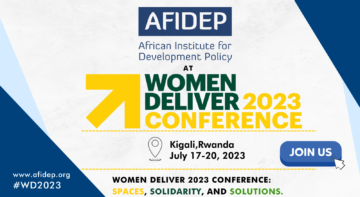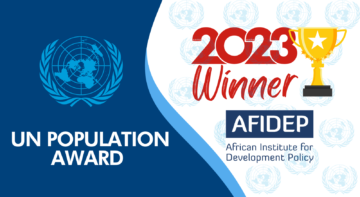Blogs

In the last quarter of 2014, the Demographic Dividend programme at AFIDEP initiated two studies in Zambia and Mozambique. The primary objectives of the ongoing studies are to assess the countries’ prospects for harnessing the demographic dividend and to identify priority policy and programme options the two countries can adopt to maximize the dividend earned in line with their development agenda.
Demographic Dividend refers to the accelerated economic growth that arises when birth rates decline rapidly and the ratio of working-age adults significantly increases. If the right policies and programmes are implemented, there will be significant increase in productivity and savings that can be further reinvested to boost socio-economic development.
The studies involve rigorous analyses of socio-economic data and modelling of policy scenarios. The prospects for harnessing the demographic dividend by Zambia and Mozambique were modelled in workshops involving key stakeholders from the respective governments and organisations. AFIDEP provided technical expertise in these workshops.
The studies are commissioned by the Ministry of Finance in Zambia and the Ministry of Planning and Development in Mozambique, and are supported through the UNFPA-ESARO and respective UNFPA country offices.
Countries support Demographic Dividend studies
According to Zambia’s acting Secretary to the Treasury, Pamela Kabamba, the goals set for Vision 2030 can be achieved if Zambia takes advantage of the demographic window.
“Harnessing the Demographic Dividend in Zambia comes at a very critical moment as the nation is at a decisive stage of its development agenda towards Vision 2030 and its commitment to the 2013 Addis Ababa Declaration” said Kabamba while officially opening a multi-sector stakeholders meeting in Lusaka, Zambia on December 17, 2014.
Stakeholders led by the Ministry of Finance in Zambia were in agreement that the results are important in planning for socio-economic development and advocacy for inclusive and people-centred development. The Zambian government is also expected to incorporate aspects of the study in its 7th National Development Plan, whose development begins in early 2015.
Government commitment is also strong in Mozambique where the Ministry for Planning and Development leads the programme. In a meeting with a senior government officer, AFIDEP was reassured of the state’s commitment to inclusive development aimed at reducing social inequality. The demographic dividend study is one of the steps geared towards achieving this goal.
It is important to note that Zambia and Mozambique have in the recent past enjoyed robust economic growth, mainly driven by their extractive industries. However, both countries have a rapidly growing and youthful population that present challenges, such as provision of quality healthcare, education and job creation. Therefore, the strong support of the demographic dividend programmes with intents of tackling the challenges by these respective governments is commendable.
Capacity Building Activities in Zambia and Mozambique
AFIDEP convened capacity building workshops in both Zambia and Mozambique where participants were drawn from key government departments in the ministries of finance, planning, education and health and other agencies. Statistical departments, Central Statistical Office (CSO) and Instituto Nacional de EstatÃstica (INE) in Zambia and Mozambique respectively were also involved.
Representatives also came from institutions of higher learning, namely, University of Zambia (UNZA) and Mozambique’s Eduardo Mondlane University. The objective of the workshops was to build the capacity of the local experts who can then continue supporting the government in demographic dividend-related work and analyses.
The workshops included learning approaches to scenario building and projections. To model the demographic dividend for the respective countries, AFIDEP used the DemDiv modelling tool developed by the USAID funded Health Policy Project and implemented by the Futures Group. Discussions were held with the participants to identify policy options to address the challenges to socio-economic development. These activities were held in the first half of November 2014 in Zambia and in the second half of November 2014 in Mozambique.
Further, a stakeholders meeting was held to validate preliminary results of the study in Mozambique immediately after the workshop. In Zambia, a larger stakeholders meeting was convened at the Taj Pamodzi hotel in Lusaka on December 17, 2014 to among other aspects; deliberate on the demographic dividend, to present preliminary results on the study and to discuss game-changer policy options that will help Zambia harness the demographic dividend.
The meeting was graced by high level representation including the acting Secretary to the Treasury and the UNFPA Zambia country representative.
AFIDEP is finalising the country reports for the demographic dividend studies in the two countries as well as policy briefs and animated presentations emergent from the studies and discussions with the stakeholders on the policy actions to optimise the demographic dividend. AFIDEP will also be involved in dissemination and advocacy activities on the demographic dividend studies that will be convened by the governments of Zambia and Mozambique in 2015.
In 2015, AFIDEP plans to initiate demographic dividend studies in other African countries. AFIDEP has conducted similar studies in Uganda and Tanzania, and is a member of the technical team that did a similar study in Kenya last year. Based on AFIDEP work on demographic dividend in Africa, we strive to build a robust body of knowledge and provide technical expertise that helps governments integrate population dynamics into development strategies.
Related Posts





